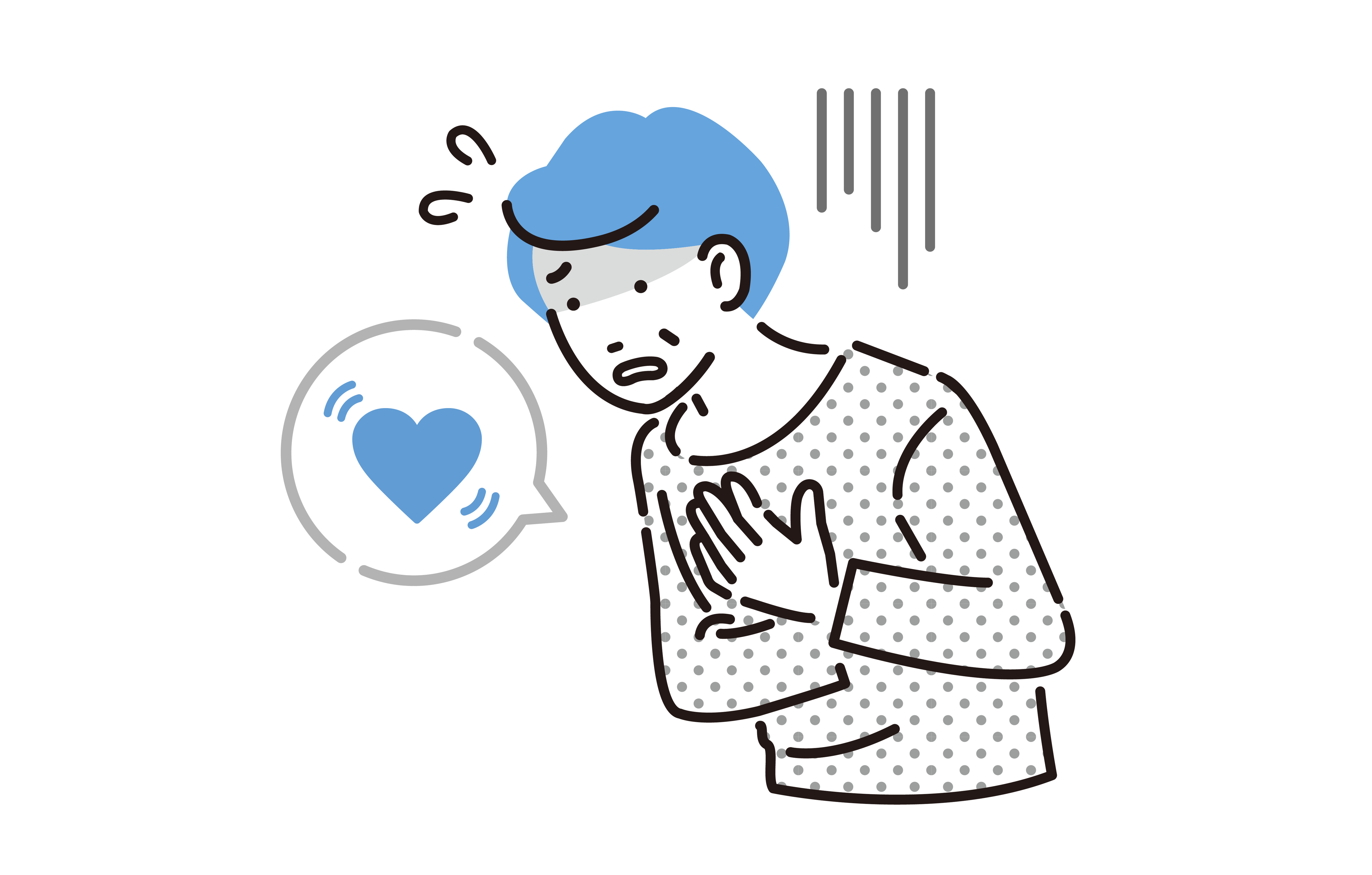Heart palpitations

Understanding what constitutes a normal heart rhythm is crucial for distinguishing between routine variations and potential abnormalities. Typically, the heart beats between 60 and 90 times per minute when at rest, known as the heart rate. It's normal for heart rate to increase during physical activity, stress, or excitement, and decrease during rest.
Now, lets look at palpitations. Heart palpitations are characterized by a rapid, pounding, or irregular heartbeat, can be an unsettling experience, making you hyper-aware of your heart's rhythm. This sensation, often accompanied by feelings of shakiness, tiredness, and a racing heart, may raise concerns about your cardiovascular health. It's crucial to note that, in many instances, heart palpitations do not necessarily indicate a serious heart condition.

Understanding the causes of heart palpitations is crucial for identifying triggers and addressing potential underlying issues. The factors contributing to palpitations can be categorized into various aspects of lifestyle, physiological responses, and medical conditions. Here's a comprehensive breakdown:
- Stress, Anxiety and strong Emotions : High levels of stress and anxiety or intense emotions such as anger, grief, or extreme sadness can elevate adrenaline levels, influencing heart rate and rhythm.
- Smoking and Drug Use: Nicotine in cigarettes and certain drugs can stimulate the heart, causing irregular beats.
- Alcohol Consumption: Excessive alcohol intake can lead to palpitations, especially if consumed in large quantities or too quickly.
- Caffeine Intake: Stimulants like caffeine found in coffee, tea, cola, and energy drinks may contribute to palpitations.
- Dietary Habits: High-fat diets may impact cardiovascular health and potentially trigger palpitations.
- Physical Exertion: Intense physical activity, exercise, or strenuous workouts can temporarily increase heart rate.
- Fever: Elevated body temperature during a fever can affect heart rate and cause palpitations.
- Thyroid Disorders: Overactive thyroid (hyperthyroidism) can lead to increased heart rate and palpitations.
- Respiratory Issues: Conditions like pneumonia may affect oxygen levels and influence heart rhythm.
- Anemia: Low red blood cell count may impact oxygen delivery, potentially causing palpitations.
- Allergies: Allergic reactions can trigger an inflammatory response affecting the heart.
- Cardiovascular Diseases: Various heart conditions, including arrhythmias, can lead to palpitations.
- High Blood Pressure: Uncontrolled hypertension may cause the heart to work harder, resulting in palpitations.
- Diabetes: Blood sugar imbalances in diabetes can influence heart rhythm.
- Medication Side Effects: Certain medications, such as prednisone, medications for ADHD, and some asthma or thyroid medications, may contribute to palpitations.

If you're experiencing heart palpitations (or along with other symptoms like shortness of breath or fatigue), here are some self-management tips and guidelines on when to seek medical assistance:
Lifestyle Adjustment
Keep a journal to identify patterns and potential triggers, noting when palpitations occur, especially at night or after eating. Manage stress through relaxation techniques, counseling, or talking to friends. Consider reducing or eliminating alcoho & drugs, caffeine, and tobacco use to prevent palpitations, especially when drinking alcohol.
Normal Heart Rhythm Check
Understand that occasional variations in heart rhythm can be normal, especially during periods of stress or exertion. If you notice persistent irregularities or if palpitations are accompanied by concerning symptoms, consult with your healthcare provider.
Medical Consultation
If hesitant or if the palpitations persist, schedule an appointment with your general practitioner to discuss your symptoms, their duration, and any concerns about palpitations during pregnancy. Your GP may perform tests, including blood pressure and heart rate measurements, or recommend an electrocardiogram (ECG). If taking medications like prednisone or adderall contributes to palpitations, discuss alternatives or adjustments with your healthcare provider.
- Your heart rate exceeds 110 beats per minute while at rest. Poor sleep, caffeine consumption, and high stress levels contribute to headaches.
- You have a persistent slow heart rate. Migraines, tension headaches, and cluster headaches can stem from various underlying health issues.
- You experience a sudden irregular heartbeat, particularly when sexually excited. Excessive use of painkillers can paradoxically lead to more headaches.
- Chest pain or pressure lasting more than a few minutes
- Confusion
- Difficulty speaking, vision issues, or facial asymmetry
- Restlessness, nausea, sweating, and looking pale
- Difficulty breathing or a feeling of imminent fainting